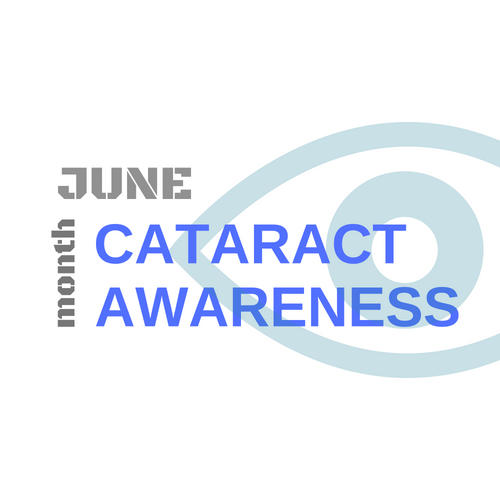June is Cataract Awareness Month
June 11, 2018

June is Cataract Awareness Month and Whitten Laser Eye will help you learn what cataracts are, how they are surgically removed, and how long it takes to recover from cataract surgery.
Cataracts are routinely diagnosed at all of our locations: Chevy Chase, Richmond and Charlotte Hall. Learn about the symptoms of cataracts, choices of intraocular lenses and cataract surgery.
What are Cataracts?
A cataract is the clouding of the lens of your eye. The lens of your eyes, along with your cornea, focuses the incoming light onto your retina. When your lens becomes cloudy it scatters light and this scattering causes your vision to become blurred or glare and sensitivity to bright lights. Changes in the delicate protein fibers that make up the lens of your eyes causes some of the proteins to clump together and that clumping causes a clouding of the lens.
Cataracts are a common development of the aging process. According to the National Eye Institute, by age 75, half of all Americans have cataracts. Your eye care professional can diagnose cataracts with a dilated eye exam. There are no medications that can be used to treat cataracts. The only treatment is cataract surgery.
Cataract Removal
There are two main types of cataract surgery—phacoemulsification and laser surgery. This procedure uses ultrasound to break up and emulsify the cataract and the cataract is then suctioned out and replaced with an artificial lens.
Most surgeons, including Dr. Whitten, perform phacoemulsification to remove your cataract. Far fewer cataract surgeons routinely perform cataract surgery by phacoemulsification or by using the femtosecond laser. Laser cataract surgery provides a greater safety profile for certain aspects of the cataract surgery using the accuracy and precision of the laser.
Both surgeries are safe and effective with highly successful outcomes.
Only one cataract is removed at a time. If you need surgery in both eyes, your surgeon will wait a few days to a few weeks to perform surgery on the other eye so you have time to completely heal from the first surgery.
Cataract Surgery Recovery and Healing
You will be prescribed antibiotic eye drops to prevent infection and anti-inflammatory eye drops to reduce inflammation. You will need someone to drive you home after the surgery and you shouldn’t do any heavy lifting or strenuous activity for a few weeks.
You will have a follow-up appointment with your surgeon the day after your surgery. Your surgeon may have other post-surgical recommendations for you to follow. For the best results follow all your surgeon’s recommendations.



